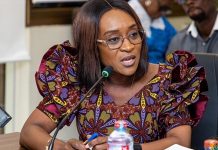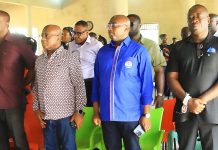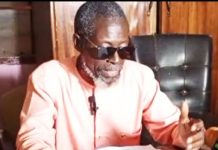Introduction
Ghana, often hailed as a beacon of democracy in Africa, has recently found itself at the intersection of spirituality and politics. In a nation where elections are meant to reflect the will of the people, a growing concern has emerged: the influence of pastors who claim to possess the power to spiritually determine Ghana’s presidency.
This phenomenon raises important questions about the balance between democracy and spiritual authority. In this article, I intend to dive into the complexities of this issue to explore whether Ghana is experiencing a spiritual dictatorship or its democratic foundation remains intact.
The Role of Pastors in Ghana’s Politics:
Ghana has a rich history of religious diversity, with Christianity being a dominant faith. Over the years, some pastors have risen to prominence, not just as spiritual leaders but also as political influencers.
These pastors claim to have unique spiritual insights and prophetic abilities, allowing them to divine the outcomes of elections. They often make bold predictions about who will become Ghana’s next president, which can carry significant weight among their followers.
- Prophetic Declarations and Election Outcomes:
One of the most notable examples is the 2012 presidential election in Ghana. Several pastors claimed to have divine insight into the outcome, with some publicly declaring that a particular candidate would win. In the end, the election results did not align with these predictions. This discrepancy raised questions about the credibility of both the pastors and the democratic process itself.
- Political Endorsements by Spiritual Leaders:
In Ghana’s 2016 election, some politicians actively sought the endorsements of influential pastors. These endorsements were not merely symbolic; they often came with financial support and vocal support from the pastor’s congregation. Such alliances blurred the lines between spirituality and politics, leading to concerns about whether candidates were gaining an unfair advantage through spiritual means.
- Electoral Manipulation: One of the most significant concerns is the potential for electoral manipulation. When pastors claim to know the future election results, it can discourage some voters from participating, believing their votes are futile. This can undermine the democratic process.
- Politicians Seeking Divine Favour: Politicians may actively seek the favour of these pastors to gain a perceived advantage in elections. This can lead to a distortion of the political landscape, as decisions are made not based on policies or public support but on spiritual endorsements.
- Public Trust in Elections: The credibility of elections is a cornerstone of any democracy. When spiritual authorities assert their influence over election outcomes, it can erode public trust in the electoral system, leading to a crisis of legitimacy. Over time, the repeated declarations of certain pastors regarding election outcomes have led to skepticism among the public. The 2020 election, for instance, saw a resurgence of prophetic declarations, which influenced some individuals’ decisions to vote or abstain. This erosion of public trust can be seen as a threat to the legitimacy of the electoral process itself.
- The Impact on Policy Discourse: In Ghana’s political landscape, the focus on spiritual prophecies can overshadow critical policy discussions. Instead of evaluating candidates based on their competence, experience, and proposed policies, voters may be swayed by the perceived divine endorsement of a particular candidate. This can divert attention away from substantive political debates.
The Pastor’s Perspective
Some pastors argue that their role is to provide guidance and prophetic insight to their followers, and they do not interfere directly in the democratic process. They see their predictions as a way of helping their congregants make informed decisions at the ballot box. However, critics contend that such predictions can be self-fulfilling, influencing voters and candidates alike.
The Way Forward:
To strike a balance between democracy and spirituality, Ghana faces several challenges:
- Regulation: The country may need to consider regulating the extent to which spiritual leaders can influence politics to maintain a level playing field.
- Civic Education: Promoting civic education can empower citizens to make informed decisions based on policies and not just prophecies.
- Transparency: Political parties and candidates should be transparent about their interactions with spiritual leaders to maintain the integrity of the electoral process.
In summary, Ghana’s struggle with the influence of spiritual leaders on its democracy is exemplified by numerous instances of prophetic declarations and political endorsements.
These examples highlight the need for clear boundaries and regulations to maintain the integrity of the democratic process while respecting the country’s spiritual diversity.
Balancing faith and politics is an ongoing challenge that requires careful consideration to ensure the continued strength of Ghana’s democracy.
By Gilbert Addah <addahgilbert@icloud.com>
The views expressed in this article are the author’s own and do not necessarily reflect The Chronicle’s stance.









